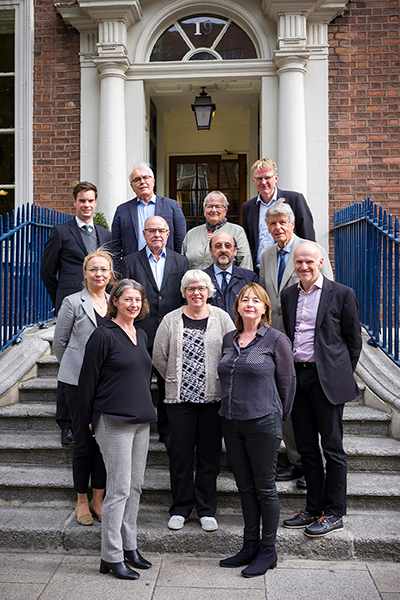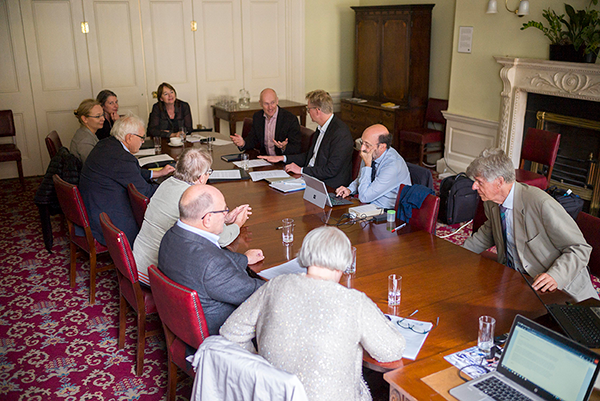Towards sustainable and fair Open Access publishing? Deliberations from the ALLEA Science & Ethics working group
At their latest meeting, ALLEA’s Permanent Working Group Science & Ethics convened to discuss contributions to the important and ongoing debates around Open Access publishing in Europe following the publication of Plan S among other pertinent issues concerning research ethics and integrity.

Members of the Permanent Working Group Science and Ethics at the Royal Irish Academy in Dublin. Credit: RIA
Expertly and generously hosted by the Royal Irish Academy, the meeting took place on 19 September at the academy’s premises in Dublin.
The expert group discussed the ethical implications of the Plan S, which was released on 4 September by 11 national research funding organisations, the so-called “coalition S” and endorsed by the European Commissioner for Research, Science and Innovation, Carlos Moedas, and the European Research Council. The proposal aims to make scientific publications funded by the coalition and through the EU’s Framework Programmes available immediately in Open Access from 2020 onwards. ALLEA is working on an initial response to the proposal.
In addition, the group discussed additional topics, which could become the focus of their inquiry in the future. Among them are the regular update of the European Code of Conduct and the dissemination of the currently available translated versions (LINK). Future topics may also include the ethics of research evaluation or ethical challenges in public-private research partnerships.
What is Plan S?
At its core, Plan S is made up of one target and 10 accompanying principles.
The target: “After 1 January 2020 scientific publications on the results from research funded by public grants provided by national and European research councils and funding bodies, must be published in compliant Open Access Journals or on compliant Open Access Platforms.”
The principles:
- Authors retain copyright of their publication with no restrictions. All publications must be published under an open license, preferably the Creative Commons Attribution Licence CC BY. In all cases, the license applied should fulfil the requirements defined by the Berlin Declaration;
- The Funders will ensure jointly the establishment of robust criteria and requirements for the services that compliant high quality Open Access journals and Open Access platforms must provide;
- In case such high quality Open Access journals or platforms do not yet exist, the Funders will, in a coordinated way, provide incentives to establish and support them when appropriate; support will also be provided for Open Access infrastructures where necessary;
- Where applicable, Open Access publication fees are covered by the Funders or universities, not by individual researchers; it is acknowledged that all scientists should be able to publish their work Open Access even if their institutions have limited means;
- When Open Access publication fees are applied, their funding is standardised and capped (across Europe);
- The Funders will ask universities, research organisations, and libraries to align their policies and strategies, notably to ensure transparency;
- The above principles shall apply to all types of scholarly publications, but it is understood that the timeline to achieve Open Access for monographs and books may be longer than 1 January 2020;
- The importance of open archives and repositories for hosting research outputs is acknowledged because of their long-term archiving function and their potential for editorial innovation;
- The ‘hybrid’ model of publishing is not compliant with the above principles;
- The Funders will monitor compliance and sanction non-compliance.
Learn more here

Working Group meeting of the ALLEA Permanent Working Group Science and Ethics at the Royal Irish Academy. Credit: RIA

